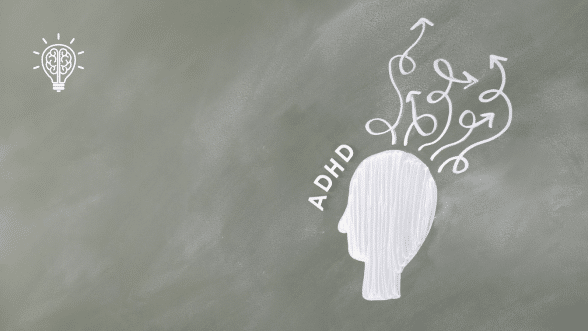
For adults with ADHD, staying productive can feel like an uphill battle. Procrastination, distractions, and difficulty with focus are common struggles that can negatively impact work performance and daily life. But with the right ADHD productivity strategies, productivity doesn’t have to be out of reach. With the right strategies and support, you can boost your focus, overcome procrastination, and get things done.
In this blog, we’ll explore how ADHD affects productivity and provide actionable techniques that can help you reduce procrastination, maintain focus, and accomplish your goals.
How ADHD Affects Productivity: Strategies for Success
ADHD (Attention Deficit Hyperactivity Disorder) affects the brain’s executive functions—skills that help us plan, organize, manage time, and stay focused on tasks. For professionals with ADHD, these challenges often lead to:
- Difficulty starting tasks: Procrastination is common as it can be hard to get started on tasks, especially when they feel overwhelming or uninteresting.
- Trouble with time management: Staying on track and managing time effectively can be a struggle, resulting in missed deadlines or an accumulation of unfinished tasks.
- Distractions and lack of focus: It’s easy to become distracted by external stimuli or switch tasks mid-way, leaving work incomplete.
However, these challenges aren’t insurmountable. By applying targeted strategies, you can significantly improve productivity and reduce procrastination.
5 ADHD Productivity Strategies to Improve Focus and Reduce Procrastination
- Time Blocking
- The “Two Minute Rule”
- Accountability Partners
- Digital Tools to Manage Tasks
- Executive Function Coaching
Time-Blocking for ADHD: A Key Productivity Strategy
Time-blocking is a powerful technique for individuals with ADHD to create structure in their day and combat distractions. The idea is simple: dedicate specific blocks of time to certain tasks or activities, breaking your day into manageable segments.
How to Implement Time-Blocking:
- Start small: Begin with short time blocks (e.g., 20-30 minutes) dedicated to a single task. Over time, you can extend these blocks as your focus improves.
- Use a timer: Set a timer for each time block and work only on that task until the timer goes off.
- Schedule breaks: Be sure to include short breaks between time blocks to recharge and prevent burnout.
This method helps break tasks into smaller chunks and keeps you focused on one thing at a time, making overwhelming tasks more manageable.
The “Two-Minute Rule”
For those with ADHD, starting a task can often be the most challenging part. The “Two-Minute Rule” is a simple productivity hack that can help you get past the mental block of procrastination.
How It Works:
- If it takes less than two minutes, do it now: When faced with a task that requires minimal time (responding to an email, filing a document), complete it right away rather than putting it off.
- Use it to start larger tasks: If a task seems too big, commit to working on it for just two minutes. Often, you’ll find that once you start, it becomes easier to keep going.
This technique reduces the friction of starting tasks and can help you build momentum.
Accountability Partners
Having someone to hold you accountable can be a game-changer for staying on track and maintaining productivity. An accountability partner can help you set goals, check in on your progress, and provide motivation when you need it most.
How to Set Up an Accountability Partnership:
- Choose the right partner: Your accountability partner could be a coworker, friend, or mentor who understands your challenges and can offer support without judgment.
- Set regular check-ins: Schedule weekly or bi-weekly check-ins to review your progress, discuss challenges, and celebrate successes.
- Be honest about your struggles: Accountability works best when you’re transparent about where you’re falling short and open to feedback.
Knowing that someone is expecting updates on your progress can provide the push you need to stay focused and on task.
ADHD Productivity Tools: Digital Solutions for Better Focus
Digital tools can be highly effective for individuals with ADHD to track tasks, manage deadlines, and stay organized. Task management apps provide a centralized space to keep track of everything you need to do, helping to reduce the mental clutter that often leads to procrastination.
Popular Tools for ADHD Productivity:
- Trello or Asana: These visual task management tools allow you to create task boards, set deadlines, and organize projects into stages.
- Todoist: This app helps break down tasks into daily lists, making it easier to manage day-to-day responsibilities.
- RescueTime: This tool tracks how you spend your time on digital devices, offering insights into how to reduce distractions and improve focus.
By keeping everything organized in one place, these tools help manage your time and avoid the overwhelm of juggling multiple tasks in your head.
Executive Function Coaching
For those with ADHD, executive function coaching can be a highly effective way to develop personalized strategies for improving productivity and overcoming procrastination. Coaches work with you one-on-one to address specific challenges, such as time management, organization, and goal-setting.
How Executive Function Coaching Helps:
- Customized strategies: Coaches tailor strategies to fit your personal strengths and challenges, helping you create systems that work specifically for your brain.
- Structured guidance: Coaches help you develop a structured plan to manage your time, organize tasks, and prioritize effectively.
- Accountability and support: Coaching provides ongoing support and accountability to keep you on track and working toward your goals.
By working with a coach, you’ll learn how to harness your strengths, address productivity challenges, and build the skills needed to thrive in your professional life.
Get Things Done with New Frontiers’ ADHD Coaching
If you’re struggling with productivity due to ADHD, you don’t have to face these challenges alone. At New Frontiers, we offer personalized ADHD Coaching to help adults with ADHD overcome procrastination, improve focus, and achieve their professional goals.
Ready to take control of your productivity? Book a discovery call today to learn more about how our expert coaches can help you overcome your procrastination.




